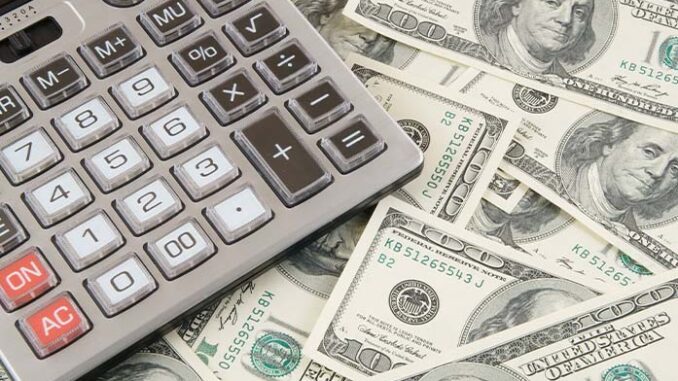
On July 16, the U. S. Bureau of Labor Statistics released the inflation figures for June. It showed the inflation rate for June to be 2.7. That means that inflation for the past 12 months rose at a rate of 2.7%, up from the May figure of 2.4%.
Inflation declined during the first four months of 2025, from 3.0 in January to 2.3 in April. Then increased to 2.4 in May and now stands at 2.7. The timing of the shift in direction leaves no doubt that the newly-imposed tariffs were at least partially responsible for the increase.
It appears that this new, higher inflation rate is not going to have a very significant impact in the areas that are generally affected.
CONSUMER SPENDING
Consumers will continue to be hurt by increasing prices, especially those who are on fixed incomes. However, after years of unmitigated increases in the cost of everything, most consumers have already made substantial changes in their purchasing habits to mitigate the effect of inflation.
STOCK MARKET
The interest here goes beyond investors and speculators. Many retirees have at least some of their retirement assets in stocks from which they are drawing fixed incomes. However, it appears that the effect on stock prices is going to be relatively minor. While all three major indices registered losses immediately following the news of higher inflation, they had recovered those losses by midday. Stocks remain volatile and unpredictable, but inflation-related losses are likely to be minor.
INTEREST RATES
This is an area in which inflation rates are likely to play a key role. We do not have a free market when it comes to interest rates. The rates that banks charge for loans and pay for savings are highly influenced by the Federal Reserve’s benchmark federal funds rate. For some time, the Federal Reserve (Fed), under the leadership of Chairman Jerome Powell, has held that rate at between 4.25% and 4.50%.
Powel has been highly criticized for not lowering rates to stimulate the economy, but he is in a difficult position because interest rates are a two-edged sword.
· Higher rates tend to slow economic growth and combat inflation
· Lower rates stimulate economic growth but may increase inflation
We want low interest rates to stimulate economic growth, but need higher rates to combat inflation. The challenge is finding the proper balance.
Another complication involving inflation is that the U. S. Bureau of Labor Statistics publishes not one but two inflation numbers. In addition to the standard inflation numbers that include everything, they also publish core inflation numbers that are calculated omitting food and energy, because those two are so volatile.
To a shopper faced with a huge increase in the cost of a loaf of bread, omitting food prices is insane. To someone trying to formulate policy that has long term effect, omitting the most volatile items from the mixture makes a lot of sense. Hence, the two-tiered inflation rate.

Core inflation has been the preferred statistic by the Fed when deciding whether to lower rates. These numbers suggest a move toward lower rates. On the other hand, the Fed cannot overlook the fact that currently the total inflation rate is above the 2.0 target and rising. Under these circumstances it is easy to understand why they want to wait until more data is available before making a move to reduce rates.
This has led some economists to make the following assumptions.
· Both standard and core inflation will continue to rise, but at a moderate rate.
· The Fed will leave interest rates alone when it meets in late July, but will do some lowering at their September meeting.
· Tariffs will continue to boost inflation, as they always do sooner or later, but that negative effect may be countered by more favorable trading postures and greater domestic productivity.
It will be interesting to see how the next inflation and gross domestic product numbers look like. They could have a significant impact on both the Fed’s actions and the mid-term elections.
